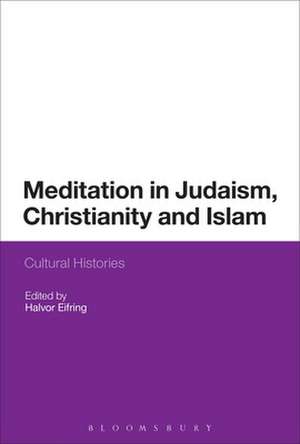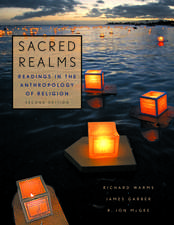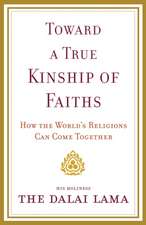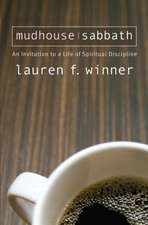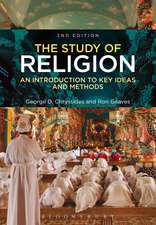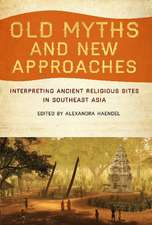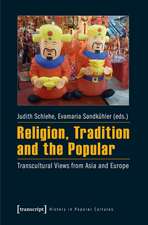Meditation in Judaism, Christianity and Islam: Cultural Histories
Editat de Professor Halvor Eifringen Limba Engleză Hardback – 23 oct 2013
| Toate formatele și edițiile | Preț | Express |
|---|---|---|
| Paperback (1) | 258.77 lei 6-8 săpt. | |
| Bloomsbury Publishing – 22 apr 2015 | 258.77 lei 6-8 săpt. | |
| Hardback (1) | 775.02 lei 6-8 săpt. | |
| Bloomsbury Publishing – 23 oct 2013 | 775.02 lei 6-8 săpt. |
Preț: 775.02 lei
Preț vechi: 991.17 lei
-22% Nou
Puncte Express: 1163
Preț estimativ în valută:
148.32€ • 153.22$ • 123.44£
148.32€ • 153.22$ • 123.44£
Carte tipărită la comandă
Livrare economică 26 martie-09 aprilie
Preluare comenzi: 021 569.72.76
Specificații
ISBN-13: 9781441122148
ISBN-10: 1441122141
Pagini: 304
Dimensiuni: 156 x 234 x 23 mm
Greutate: 0.59 kg
Ediția:New.
Editura: Bloomsbury Publishing
Colecția Bloomsbury Academic
Locul publicării:London, United Kingdom
ISBN-10: 1441122141
Pagini: 304
Dimensiuni: 156 x 234 x 23 mm
Greutate: 0.59 kg
Ediția:New.
Editura: Bloomsbury Publishing
Colecția Bloomsbury Academic
Locul publicării:London, United Kingdom
Caracteristici
First volume to examine and compare meditative practices of Judaism, Christianity and Islam.
Notă biografică
Halvor Eifring is a Professor in the Department of Culture Studies and Oriental Languages, University of Oslo, Norway.
Cuprins
Contributors Acknowledgements Preface 1. Introduction Meditation in Judaism, Christianity and Islam: Technical Aspects of Devotional Practices Halvor Eifring, Professor of Chinese, Department of Culture Studies and Oriental Languages, University of Oslo 2. Judaism Ancient Hebrew Meditative Recitation Terje Stordalen, Professor of Theology, Faculty of Theology, University of Oslo Mystics without Minds? Body and Soul in Merkavah Mysticism Michael D. Swartz, Professor of Hebrew and Religious Studies, Department of Near Eastern Languages and Cultures, The Ohio State University Meditative Prayer in Moshe Cordovero's Kabbalah Alan Brill, Cooperman/Ross Endowed Chair of Jewish-Christian Studies, Department of Religion, Seton Hall UniversitySpiritual Friendship as Contemplative Practice in Kabbalah and Hasidism Lawrence Fine, Irene Kaplan Leiwant Professor of Jewish Studies, Mount Holyoke College 3. Christianity Meléte in Early Christian Ascetic Texts Per Rönnegård, Research Fellow, Centre for Theology and Religious Studies, Lund University The Early Jesus Prayer and Meditation in Greco-Roman Philosophy Henrik Rydell Johnsén, Research Fellow, Centre for Theology and Religious Studies, Lund UniversityMeditation in the East Syrian Tradition Serafim Seppälä, Professor of Systematic Theology and Patristics, School of Theology, Philosophical Faculty, University of Eastern Finland The Pathless Path of Prayer: Is There a Meditation Method in Meister Eckhart? Jeffrey Cooper, Assistant Professor, Theology Department, University of Portland Teresa Of Avila's Evolving Practices of 'Representing' Christ in Prayer Mary Frohlich, Associate Professor of Spirituality, Catholic Theological Union of Chicago Jesuit Ekphrastic Meditation: Louis Richeome's Painting in the Mind Judi Loach,Interdisciplinary Research Professor in the Humanities, Cardiff University Imageless Prayer and Imagistic Meditation in Orthodox Christianity Augustine Casiday, Honorary Research Fellow, School of History, Archaeology and Religion, Cardiff University 4. IslamSufi Dhikr Between Meditation and Prayer Jamal J. Elias, Walter H. Annenberg Professor in the Humanities and Professor of Religious Studies, University of Pennsylvania Movement and Stillness: The Practice of Sufi Dhikr in Fourteenth-Century Central Asia Shahzad Bashir, Lysbeth Warren Anderson Professor in Islamic Studies, Department of Religious Studies, Stanford University Music and Remembrance as Meditation: Sama' in the Indus Valley Michel Boivin, Senior Fellow, Centre for South Asian Studies, CNRS-EHESS5. Science The Natural Science of Meditation - A 'Black Box' Perspective? Svend Davanger, Professor of Neuroscience, Institute of Basic Medical Science, University of Oslo
Recenzii
Meditation in Judaism, Christianity and Islam is a well written book with several strengths. One is that it focuses on meditation in Western religions - this is much less studied than meditation in Eastern religions. A second strength is that the book has a cross-cultural comparative and historical approach to meditation, both in focusing on the three Western monotheistic religions and in also including a comparison with East Asian and Indian traditions. A third strength is its focus on meditative practices rather than on ideas. Meditation in Judaism, Christianity and Islam is a fresh start in the study of meditation and greatly advances research in the field.
Meditation is a practice found in virtually all religions. This remarkable collection of essays explores the practice of meditation in the Abrahamic religions, proceeding phenomenologically, proposing to see meditation as a 'self-administered technique for inner transformation'. With clarity and scholarship, the different ways in which meditation functions in the different religions-and within them-are revealed. One of the strengths of the book is the frequent willingness of the contributors to acknowledge that meditation, thus understood, cannot be confined to the phenomenological, but draws the discussion insistently into the realm of prayer.
Meditation is a practice found in virtually all religions. This remarkable collection of essays explores the practice of meditation in the Abrahamic religions, proceeding phenomenologically, proposing to see meditation as a 'self-administered technique for inner transformation'. With clarity and scholarship, the different ways in which meditation functions in the different religions-and within them-are revealed. One of the strengths of the book is the frequent willingness of the contributors to acknowledge that meditation, thus understood, cannot be confined to the phenomenological, but draws the discussion insistently into the realm of prayer.
